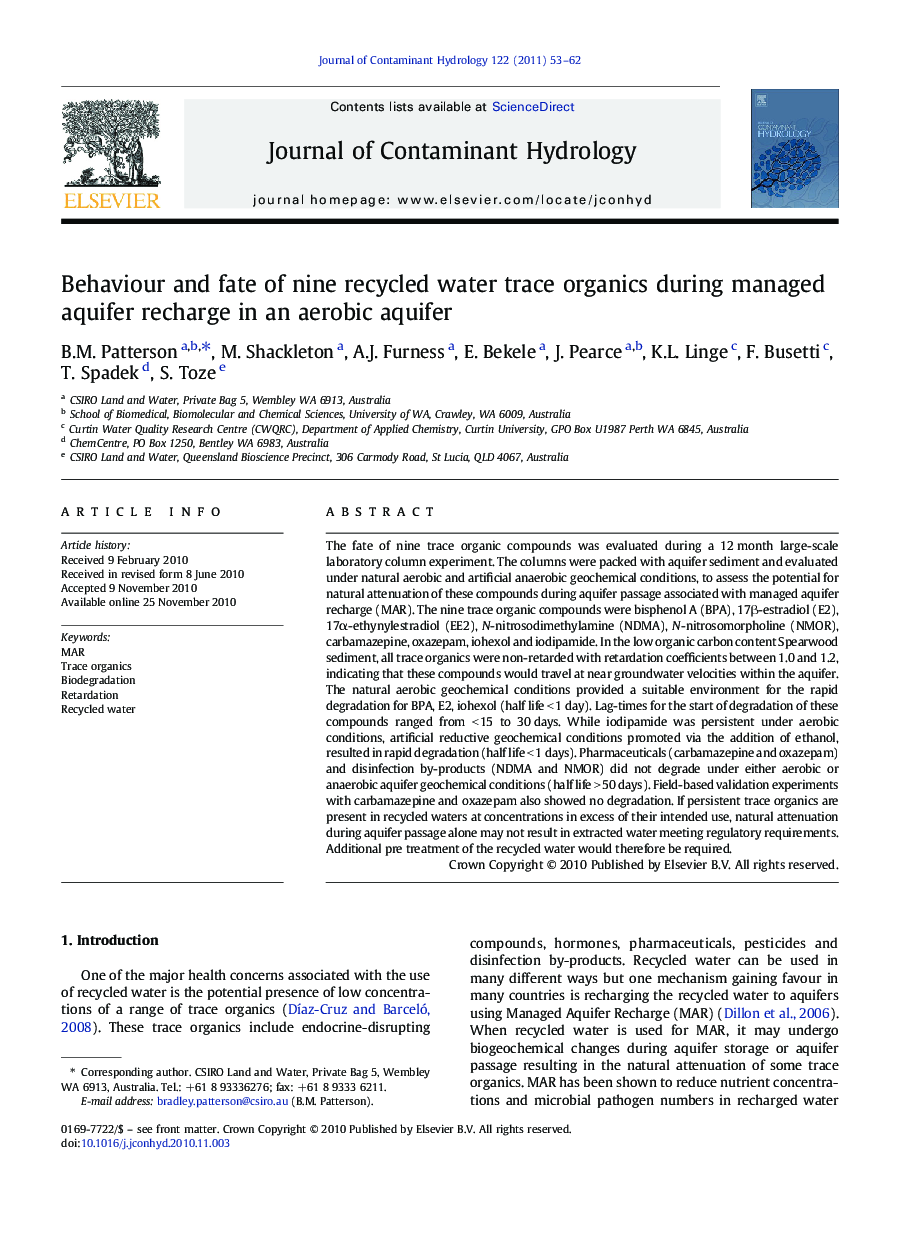| کد مقاله | کد نشریه | سال انتشار | مقاله انگلیسی | نسخه تمام متن |
|---|---|---|---|---|
| 4546977 | 1627080 | 2011 | 10 صفحه PDF | دانلود رایگان |

The fate of nine trace organic compounds was evaluated during a 12 month large-scale laboratory column experiment. The columns were packed with aquifer sediment and evaluated under natural aerobic and artificial anaerobic geochemical conditions, to assess the potential for natural attenuation of these compounds during aquifer passage associated with managed aquifer recharge (MAR). The nine trace organic compounds were bisphenol A (BPA), 17β-estradiol (E2), 17α-ethynylestradiol (EE2), N-nitrosodimethylamine (NDMA), N-nitrosomorpholine (NMOR), carbamazepine, oxazepam, iohexol and iodipamide. In the low organic carbon content Spearwood sediment, all trace organics were non-retarded with retardation coefficients between 1.0 and 1.2, indicating that these compounds would travel at near groundwater velocities within the aquifer. The natural aerobic geochemical conditions provided a suitable environment for the rapid degradation for BPA, E2, iohexol (half life < 1 day). Lag-times for the start of degradation of these compounds ranged from < 15 to 30 days. While iodipamide was persistent under aerobic conditions, artificial reductive geochemical conditions promoted via the addition of ethanol, resulted in rapid degradation (half life < 1 days). Pharmaceuticals (carbamazepine and oxazepam) and disinfection by-products (NDMA and NMOR) did not degrade under either aerobic or anaerobic aquifer geochemical conditions (half life > 50 days). Field-based validation experiments with carbamazepine and oxazepam also showed no degradation. If persistent trace organics are present in recycled waters at concentrations in excess of their intended use, natural attenuation during aquifer passage alone may not result in extracted water meeting regulatory requirements. Additional pre treatment of the recycled water would therefore be required.
Research Highlights
► The aerobic conditions were suitable for rapid degradation for BPA, E2, iohexol.
► Iodipamide degraded under anaerobic conditions, but not under aerobic conditions.
► Pharmaceuticals and disinfection by-products did not degrade under either condition.
► Field-based experiments with carbamazepine and oxazepam also showed no degradation.
Journal: Journal of Contaminant Hydrology - Volume 122, Issues 1–4, 25 March 2011, Pages 53–62